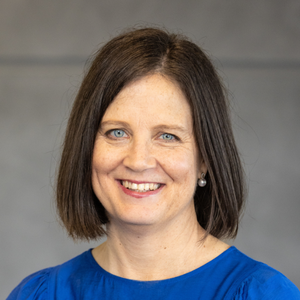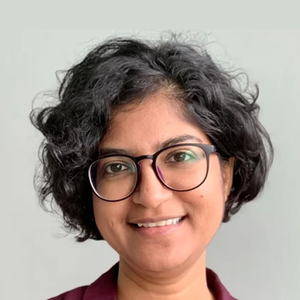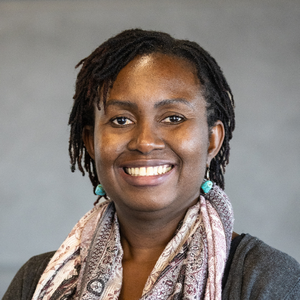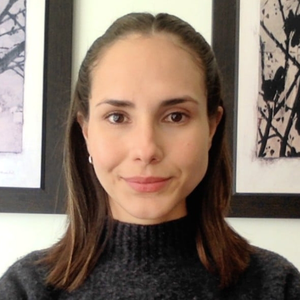
Professor Sara E Davies FASSA FAIIA
Deputy Director and Chief Investigator at the Centre of Excellence for the Elimination of Violence Against Women (CEVAW) at Griffith UniversitySara E. Davies, PhD, FASSA, FAIIA, is a Professor of International Relations, Griffith Asia Institute, Griffith University, Australia and Deputy Director (Indo-Pacific Research) of the Australian Research Council Centre of Excellence for the Elimination of Violence Against Women.
Sara leads the Context Pillar, the Griffith Node, and co-leads the Impact of Shocks on Violence Against Women workstream for CEVAW. Sara’s research examines how to scale up prevention and protection capacity for at-risk populations during shocks including conflict, mass atrocities, and infectious disease outbreak events. Recently, her research has been dedicated to the study of early warning reporting conditions to prevent conflict-related gender-based and sexual violence; and community capacity-building for disease outbreak emergencies in South-East Asia and South Asia.

Professor Jacqui True FASSA FAIIA
Director and Chief Investigator at the Centre of Excellence for the Elimination of Violence Against Women (CEVAW) at Monash UniversityJacqui True FASSA FAIIA is Professor of International Relations and Director of the Australian Research Council Centre of Excellence for the Elimination of Violence against Women (CEVAW).
She is a Global Fellow, Peace Research Institute, Oslo (PRIO) and received an honorary doctorate from Lund University Sweden in 2018. Her research focuses on gendered political violence, feminist political economy and the Women, Peace and Security agenda. Most recently she published, Hidden Wars: Gendered Violence in Asia’s Civil Conflicts (2024) and co-edited The Oxford Handbook of Women, Peace and Security (2019) (with Sara E. Davies). In 2021 she was named by Apolitical (UK) as one of the top 100 global experts on gender policy for gender-based violence.

Dr Phyu Phyu Oo
Research Fellow at the Centre of Excellence for the Elimination of Violence Against Women (CEVAW) at Griffith UniversityPhyu Phyu Oo is a Research Fellow at the Centre of Excellence for the Elimination of Violence Against Women (CEVAW) at Griffith University.
She is a scholar and practitioner with over 15 years of expertise in public health, addressing gender-based and sexual violence in conflict zones across the Indo-Pacific. She has a strong background in collaborating with the United Nations, international NGOs, and academic institutions. She was awarded a Fulbright Scholarship in 2014 and a Griffith Postgraduate Scholarship in 2019. In 2022, she was awarded a SEED grant from the Gender Equality Research Network of Griffith University.

Joana Osei-Tutu
PhD Candidate at the ARC Centre of Excellence for the Elimination of Violence Against Women (CEVAW) at Monash UniversityJoana Ama Osei-Tutu is a PhD Candidate at the School of Social Sciences and an HDR Student of the Centre of Excellence for the Elimination of Violence Against Women (CEVAW) at Monash University.
Professionally, she is the Acting Deputy Director of the Women, Youth Peace and Security Institute at the Kofi Annan International Peacekeeping Training Centre. She holds a Master of International Studies (Development Cooperation) from the Ewha Womans University. Her research examines the influence of structural norms on terrorist organisations, specifically investigating how these norms shape their strategic use of sexual violence. De Gruyter published her recent co-authored book, "The Dynamics of Conflict-Related Sexual and Gender-Based Violence. Comparing Impact Across Global Regions."

Yolanda Riveros Morales
Data Methods and Design Manager at Equality Insights, International Women's Development Agency (IWDA)Yolanda is an economist with extensive experience in research settings in data methods and analysis of gender issues. She worked at the Monash Gender, Peace and Security Centre, where she was responsible for the quantitative analysis to investigate aspects such as peacebuilding and women’s political participation, misogyny and violent extremism, and sexual and gender-based violence in conflict contexts. In her home country, Yolanda served as an advisor to the Colombian Government, focusing on poverty reduction and programs aimed at preventing teenage pregnancies. Currently, she holds the Data Methods and Design Manager position at Equality Insights, a gender data program delivered by the International Women’s Development Agency (IWDA).

Dr Patricia Salas Sanchez
Patricia is an International Relations scholar and the General Manager (Operations) at the Australian Institute of International Affairs Victoria. She holds a Ph.D. in Politics and International Relations from Monash University, a MSc in International Relations from the University of Edinburgh, and a Specialised Honours BA in Global Political Studies from York University.
Her research and teaching interests are international political and social theory, international political sociology, foreign policy, and the philosophy of technology. She is the author of ‘Moral Power Games in Foreign Policy: Making Russia Traditional and Sweden Feminist’ (de Gruyter).

Dr Helen Stenger
Research Fellow at the Centre of Excellence for the Elimination of Violence Against Women (CEVAW) at Monash UniversityHelen Stenger is a Research Fellow at the Centre of Excellence for the Elimination of Violence Against Women (CEVAW) at Monash University. She holds a Ph.D. in Politics and International Relations from Monash University, a Master of Arts in International Relations from Leiden University and a Master of Science in Clinical Neuropsychology from the University of Groningen. Her research interest lies at the intersection of extremism, including Islamist, far-right and Buddhist, and gender-based violence. Helen Stenger’s work has been published in the European Journal of International Security, Critical Studies on Terrorism, and European Journal of Politics and Gender. Her recent book is titled Returning Home: An Intersectional Analysis of the Repatriation, Rehabilitation and Reintegration of Foreign Fighters.